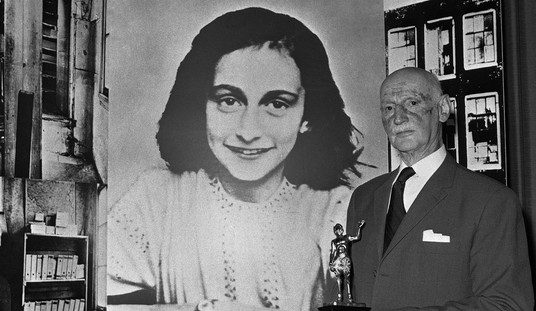
This election season’s primary results, in particular Mitch McConnell’s lopsided trouncing yesterday of Matt Bevin, have produced their share of obituaries for the Tea Party. But the experience so far of Tea Party and other insurgent showdowns against the GOP establishment just goes to show that candidates and campaigns still matter – and that’s not likely to change. While both “Establishment” and Tea Party campaigns have gotten savvier in learning how to play the primary game, we are likely for the foreseeable future to see Tea Party challengers win when they are good candidates, with some prior political experience, talent and funding – and lose when they lack one or more of those attributes. I’d like to look here in particular at the importance of political experience, and whether Tea Party campaigns has been losing races because it was running complete political novices.
As my analysis below shows, the answer to that question is not cut and dried – but on the whole, the Tea Party candidates with the staying power to win both a primary and general election have tended not to be people jumping into the political fray for the first time in their lives. As we’ll see, political novices are most likely to win when they are business executives running for governor without an incumbent opponent, and candidates without prior elective experience are best suited to win when they have some family connection or other appointed entree into politics.
Experience isn’t everything; Tea Party challenges have also failed for being underfunded and for having a crowded field that divided the anti-Establishment vote. But these and other aspects of successful campaigns – the ability to raise money, unite factions behind a single candidate, and avoid disabling gaffes – tend also to be byproducts of experience. The lesson is that activists who want to win statewide races behind Tea Party challengers to entrenched incumbents should begin by building a bench of Congressmen, state Attorneys General, state Treasurers, Secretaries of State and Comptrollers, state legislators, Mayors, district attorneys, and other intermediate rungs on the ladder to governorships and Senate seats.
Methodology
For the analysis below, what I did was go through the list of Republican primary battles in Senate and Governor’s races from 2010 through 2014, and isolate the races that can reasonably be classified as “Establishment” versus “Tea Party” races. Now, this involves a fair amount of generalization, and I show my work so you can draw your own conclusions. The Establishment, broadly speaking, refers to the official party committees (the RNC, NRSC, RGA and the state-level parties) and large organizations (e.g., the Chamber of Commerce, Karl Rove’s group), but also to the constellation of donors, officeholders, and pundits that collectively tend to circle the wagons around party leadership and more moderate or less rock-the-boat candidates. Not every “Establishment” organ or figure has taken sides in each of these races, and each can argue for their own won-loss record, but it’s usually not hard to tell who has the implicit or explicit backing of party bigwigs. The “Tea Party” is an even more amorphous collection of insurgent groups across a variety of issues, including the Club for Growth, the Senate Conservatives Fund, FreedomWorks, and a host of smaller groups with “Tea Party” in the name (some of which are more legitimate than others, some of which are frankly scams on donors and candidates), social conservative groups, and individual figures like Jim DeMint, Sarah Palin, Mark Levin, and of course Erick Erickson. And again, different figures in this space have made different choices in different races. That said, it’s still possible to see fairly sharp distinctions between the candidates who have “Establishment” backing and those who had to run against a headwind of opposition and rely on Tea Party support. I left off some races like the 2012 Ohio Senate race, where Josh Mandel had a lot of early Tea Party support but had no real Establishment opposition; ditto John Boozman’s 2010 Senate campaign in Arkansas.
I also rated the candidates’ experience on a 4-point scale – which again oversimplifies, but allows us to perform a quantitative comparison. I gave 3 points to incumbents and other candidates who had previously won a prior Senate, Governor or At-Large (i.e., statewide) House race; 2 to candidates who had won prior elections above the local level; 1 to candidates who had some political experience (appointed or local office, or working as a full-time activist or pundit) but nothing on the level of a Congressional or even state legislative race; and 0 to true political newcomers. Those ratings are listed under “TE#” and “EE#” and the difference between the Tea Party and Establishment candidate in a race listed under “Diff”.
Let’s walk through the races, grouped by outcome, and then sum up the findings at the end. Note also that in a few places I’ve listed a “win” that was delivered, not by primary voters, but by a party convention or by one side dropping out of the race.
Tea Party General Election Wins
15 races can be more or less classified as primary and general election Tea Party victories:
As you can see, this is a heterogenous group. Not all are conservatives – Rand Paul is a libertarian, Martinez a moderate, and Sandoval basically a libertarian (Sandoval ran a populist outsider campaign against a corrupt incumbent; Martinez mostly made her peace with the political establishment of New Mexico after Pete Domenici’s son’s campaign flamed out, although her chief primary opponent had served as chairman of the state party from 2004-09). Not all are political outsiders; Rick Perry had been in office forever, but ended up beating back a primary challenge backed by DC-based moderate and establishment figures by forging an alliance between Austin insiders and Texas Tea Partiers. Not all were even the first choice of national Tea Party groups – Deb Fischer won on the strength of Tea Party-oriented voter support, but the national groups had backed Don Stenberg. Others, like Haley, Rubio, Toomey, Paul and Cruz faced open and fierce opposition from the political establishment both nationally and in their respective states.
Of the six candidates listed here who had never won major office before, two were second-generation national political figures (Paul and Lee), and one (Cruz) had served in a prominent and controversial government office (he was appointed Texas Solicitor General by Greg Abbott). Rick Scott and Rick Snyder were both business executives running for open-seat Governorships, a job voters have been traditionally more willing to entrust to business leaders based on a showing of executive competence. That leaves only Ron Johnson – and after Leinenkugel (whose Establishment credentials were somewhat flimsy anyway) dropped out of the race, Johnson’s only primary opposition was other Tea Party novices. That doesn’t diminish the impressiveness of Johnson’s general election win against an entrenched incumbent blue-state Senator (Russ Feingold) with a national reputation and no major scandal baggage, but it highlights what a rarity his victory was.
Establishment General Election Wins
12 races can be classified as Establishment general election wins after defeating a Tea Party challenge; 11 of those were Establishment primary wins, plus the 2010 Alaska Senate race in which the Establishment candidate (Lisa Murkowski) lost the primary to a Tea Party challenger (Joe Miller) but refused to accept the verdict of the primary voters, ran third-party in the general, and won.
Interestingly, unlike the 2014 primary battles, not one of these races involved a Tea Party candidate new to politics, although Miller, Lamontagne and Vander Plaats had never won any office of note, and Miller’s inexperience was exposed in the general election. And Chris Christie actually beat a more experienced candidate in Steve Lonegan – but then, we know by now that Christie is an exceptionally talented politician. Several of these races simply came down to the better candidate winning, with an assist from some incumbents shifting their voting patterns in the run-up to the primary. J.D. Hayworth might have exploited voter frustration with McCain, but failed to get traction because Hayworth is a clown, and an ethically challenged clown at that. Liljenquist is a promising candidate, but was little-known, and Orrin Hatch was regarded as a conservative hero for the first two decades or so of his tenure in the Senate, a status that (combined with his deep roots in Utah politics) doesn’t wear off overnight; he was never the sort of burr in the saddle that Lugar or Specter had been. Stutzman lost in large part because the Right was divided between him and Hostettler; Haslam won for similar reasons.
Tea Party Primary Wins & General Election Losses
10 races can be classified as Tea Party primary victories that went down to defeat in the fall. These are the most controversial races, since we are frequently told (often without a fair understanding of the facts of the particular races or the flaws of the Establishment candidates) that the Tea Party cost Republicans these races.
You will notice right away that less than half of these candidates were experienced politicians, and three of those four – Cuccinelli, Angle, and Buck – all lost very close races in which they won independent voters, in Buck’s case by a double-digit margin. I won’t rehash those races here, as Sean Trende and Dave Weigel recount the relevant history, except to note that (1) we forget how much damage some of the Establishment candidates did to themselves and (2) there was really nothing in Mourdock’s history to suggest the problems that would blow up in his face after a bad debate answer that went national due to the fallout from Todd Akin. Dudley also lost a tight race, featuring possibly the most extreme gender gap on record (he won male voters in Oregon 60-36, but lost female voters 62-36). On the other hand, Long and Bongino were running essentially unwinnable races from the start.
Clearly, O’Donnell, Maes and Paladino were candidates who suffered from a combination of (1) political inexperience and (2) flaws that would have been better-known to the primary electorate if they’d run before.
Establishment Primary Wins & General Election Losses
Set against the 10 Tea Party losses are these 14 races in which an Establishment candidate beat back a Tea Party challenger and went on to lose in the fall. As with the prior group, not all of the losing Tea Party candidates would actually have been viable in the general election, but in either event the interesting question is why they lost when they lost, in this case in the primary.
Rehberg and Berg were two of the biggest general-election failures in recent memory in spite of being experienced candidates, but both had overcome opponents who simply were not experienced enough to mount a credible primary challenge. Jamie Radtke was something of a disaster of a candidate, yet another example of leaving voters without a real alternative to a flawed but veteran Establishment candidate (Allen). Mack had the field cleared for him after both Hasner and Haridopolos dropped out. At the other end of the scale, California primary voters chose the less-experienced candidates in 2010 and got nowhere with them.
Primaries Lost By Both Establishment & Tea Party
A few of the contested primaries of recent years defy even rough classification, because both sides started the primary process by backing a candidate, and both sides lost to a candidate who defied the Establishment/Tea Party divide.
The Akin race is maybe the most notorious of all, but there was a clear Establishment-backed candidate (Brunner had the support of the powerful Blunt family and its allies), while the Tea Party movement and Sarah Palin backed Steelman; neither side wanted Akin, who was seen as too hardline socially for the Establishment but too establishment-minded economically for the Tea Party. But Akin had something his opponents didn’t: he’d been winning elections since 1989. (He also had the Democrats shrewdly spending money to attack his opponents). He ended up winning a race that was close to a 3-way dead heat. As both Trende and Weigel note, Akin was not a Tea Party creation so much as a result of the two sides dividing the opposition.
Linda McMahon’s two Senate races also defy the categories. In 2010, the NRSC had recruited former Congressman Rob Simmons into the race, while Tea Partiers were backing Schiff; McMahon, a self-funding moderate from the most populist of businesses (pro wrestling), muscled in and beat both. By 2012, McMahon had made more of her peace with the Establishment, and her primary opponent (Chris Shays) had spent two decades as one of the most liberal Republicans in the House, so Connecticut’s Tea Partiers had no real choice.
2014 Tea Party Primary Wins
So far, 2014 has produced only two Tea Party wins in statewide primary races, both in Nebraska.
Nebraska’s been the one bright spot for the Tea Party this season, and the efforts of the Establishment to downplay its attempts to stop him (many of which had more to do with ire at the Senate Conservatives Fund than Sasse) are a tribute to the bandwagon effect of victory. Sasse is a talented candidate who raised a boatload of money, and his main opponent (Osborn) self-destructed; given the deep-red status of Nebraska, Sasse maybe the unusual outsider candidate to win a Senate race, and even he spent some years in DC working for the Bush Administration.
2014 Establishment Primary Wins
The larger number of Establishment victories this season has fueled the “Tea Party is dead” narrative. Certainly it illustrates the growing sophistication of the Establishment campaigns (especially incumbents) in spotting Tea Party challenges early and working to close them off. It also illustrates the number of races in which a low-quality, poorly-funded Tea Party primary challenge will be mounted against incumbents who in years past would simply have run unopposed.
Hutchinson’s challenger wasn’t a serious threat, and Rauner won in large part because he not only had money but the good fortune to face the same group of candidates who lost the same race to the same opponent in 2010. Liz Cheney, while a fine candidate in the abstract, is really a foreign policy Establishment figure at heart, and was miscast as a Tea Partier. Gardner, of course, will take his nomination by acclimation, as Buck graciously and wisely shifted into a House race to make room, but that Senate race had previously been a dogfight. Wehby is the unusual political neophyte to win as the Establishment-backed candidate, but she had the great advantage of running as a single-issue anti-Obamacare candidate whose opponent, Conger, cast a vote for the disastrous and now defunct Cover Oregon health exchange.
But the Kentucky and North Carolina races were the clearest examples of the Tea Party running political rookies. Bevin, Brannon and Harris all had their virtues, but they got buried in fundraising, Brannon’s mouth and rookie mistake in failing to settle a business dispute, and the inability in North Carolina to unite behind either Brannon or Harris were all fatal.
Scorecard
So, when you add up all the categories of races, what does that tell us? First, let’s look at the overall won-loss record for Tea Party candidates, grouped by their experience level:
And here is how Tea Party campaigns matched up when you rank them by the differential in experience:
As you can see, the Tea Party may actually have its best primary winning percentage running complete novices, but by far its best general election showings have come behind more experienced candidates, and the bulk of its wins are in races where the Tea Party candidate was not significantly less experienced than the Establishment candidate. And it has actually floundered when there isn’t a veteran primary opponent who can be the target of anti-incumbent, anti-Washington ire.
Now, let’s apply the same two analyses to Establishment candidates, with the second chart being mostly a mirror image of the first (not quite; for example, I didn’t include the 2014 Georgia Senate race since we don’t yet know whether to credit Perdue or Kingston as the victor):
and
Unsurprisingly, the general election success of Establishment campaigns has been directly proportionate to the experience of the candidates.
Remaining 2014 Tea Party v Establishment Primary Battles
There are other races as well, although the lines of division are harder as of yet to detail in the Iowa Senate race (where two-term state legislator Joni Ernst, backed by Mitt Romney and Sarah Palin, is trying to unite the two factions against a number of opponents with no electoral experience) and the Arizona Governor’s race (in which most of the crowded field is running to the right). The Rhode Island Governor’s race is a two-man fight, but “Moderate Party” candidate Ken Block has actually been trying to run a more populist campaign than Cranston Mayor Allan Fung. Some of the races listed above are really just token opponents, and others don’t fit that neatly in the Tea Party/Establishment dichotomy.
But in evaluating their odds, it’s unavoidable that Wolf, Maness and Bowers have a tall hill to climb as political newcomers, two of them challenging incumbent Senators; Miller has an even taller one as a general election failure, albeit one who probably would have won in 2010 if Murkowski hadn’t run as an independent. That’s why conservatives are more excited about McDaniel, who’s a more experienced politician, and Shannon.
The most important decision in any election is who runs, and who doesn’t. Tea Partiers may occasionally find a diamond in the rough, but their desire to celebrate the citizen-politician shouldn’t obscure the fact that politics is a craft, and people who have practiced it for some time are more likely to have gotten good at it.

























Join the conversation as a VIP Member